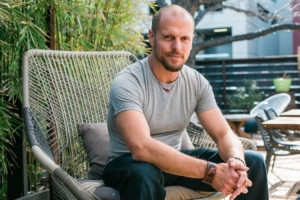
At the beginning of the month, Los Angeles-based nutraceuticals company Irwin Naturals announced its ketamine clinic rollup strategy, starting with Midwest Ketafusion, a ketamine treatment clinic in Iowa City, Iowa. Midwest Ketafusion will be rebranded as Irwin Naturals Emergence, and the company’s vision is to become the leading chain of ketamine treatment clinics in the world.
What wasn’t immediately clear from reading the press release is the real revelation and rationale in the work Irwin is doing to drive down costs, providing wider access to individuals needing the radically effective treatment the most.
Since 1994, Irwin Naturals has been in the plant medicine game. The goal was always to provide the highest quality nutritional supplement product for the mitigation and prevention of a wide array of ailments, at a price point people could afford. From years spent focused on the wellness space, Klee Irwin, founder and CEO of Irwin Naturals can outline three “uber” disease categories: mental health, cardiovascular diseases, and cancers — with hundreds of other diseases living under the umbrella of those three major categories.
It’s Irwin’s belief that while instances of occurrence of disease within the two former categories have grown at a linear rate, in recent years we’ve entered into a “doubling algorithm” for mental and behavioral diseases. It’s this disconcerting phenomenon that has captured the attention of policy makers of all political orientations, and made celebrities and other high-profile influencers step to the forefront of the effort to address and destigmatize mental and behavioral health awareness, broadening the public dialogue. This dialogue increasingly encompasses discussion of psychedelics as contenders for not only treatment of, but a possible cure for diseases and disorders that transcend all demographic distinctions and are insidiously destructive to the wellness of civil society.
At present, the only psychedelic medicine that has been approved for off-label use by the FDA is ketamine. And there continues to amass a substantial body of evidence for its efficacy that far surpasses, in dramatically shorter time windows, the success rates of previously utilized pharmaceuticals for the treatment of depression, anxiety disorders, PTSD and more.
But as the rift between classes in the U.S. widens, the diseases that can affect the poorest among us continue to be some of the hardest, most cost-prohibitive to treat.
“Ketamine has been used for decades, as the go-to anesthetic in surgeries. It’s very, very well understood in terms of its side effects, how to mitigate side effects and risk. It’s a rock solid, familiar drug. And it’s perfectly legal for doctors to prescribe it off label for any mental health condition that they want,” Irwin tells Psychedelic Spotlight. “But here’s the rub. Insurance isn’t paying for those off-label uses.”
“And the problem from an ethical standpoint is that when it comes to cancer, it doesn’t really track to sociopolitical status or income,” he continues. “It doesn’t track to how much money you make or how much education you’ve had. When it comes to mental diseases, some of them track to income.”
For example, Irwin points to the increased likelihood of low-income women being sexually assaulted, or low-income young men joining the military, with both experiences potentially yielding severe PTSD. “The point is, those among us suffering the most from the opioid epidemic, which is a self treatment of these mental health problems, [are] those suffering from trauma,” says Irwin.
By acquiring and bringing the day-to-day operational expenses of a chain of ketamine clinics under the Irwin Emergence umbrella, the cost of business can be more effectively scaled and consolidated by an already largely profitable entity. By doing so, the standard for treatment expenses can be radically disrupted. Those among us who might need a treatment regimen of six infusion sessions but who could never afford a $3,000.00 cash cost, will finally have a shot at getting the care they need.
Irwin alluded to the success of the Jenny Craig model, in providing accessible weight management counseling options for the mass market by driving down costs through economies of scale and best practices.
“I have a brand that’s known by eight out of ten American households. I can lend it to the cause,” Irwin says. “I also have an intention. I want not to be greedy. I want to make my money by making a small profit on the masses rather than a big profit on an elite, smaller group of customers. That’s just good business. I don’t have to be altruistic to have that common sense. If you’re going to be a mass market leader, you must be priced for the masses. And it is business sense for me, but it’s honestly driven by a big bleeding heart, a sense of social responsibility.”
He adds, “You know, when there’s a zombie apocalypse, those of us who have the ability to do something about it should step up to the plate and try to help, even if it doesn’t make us trillionaires.”





